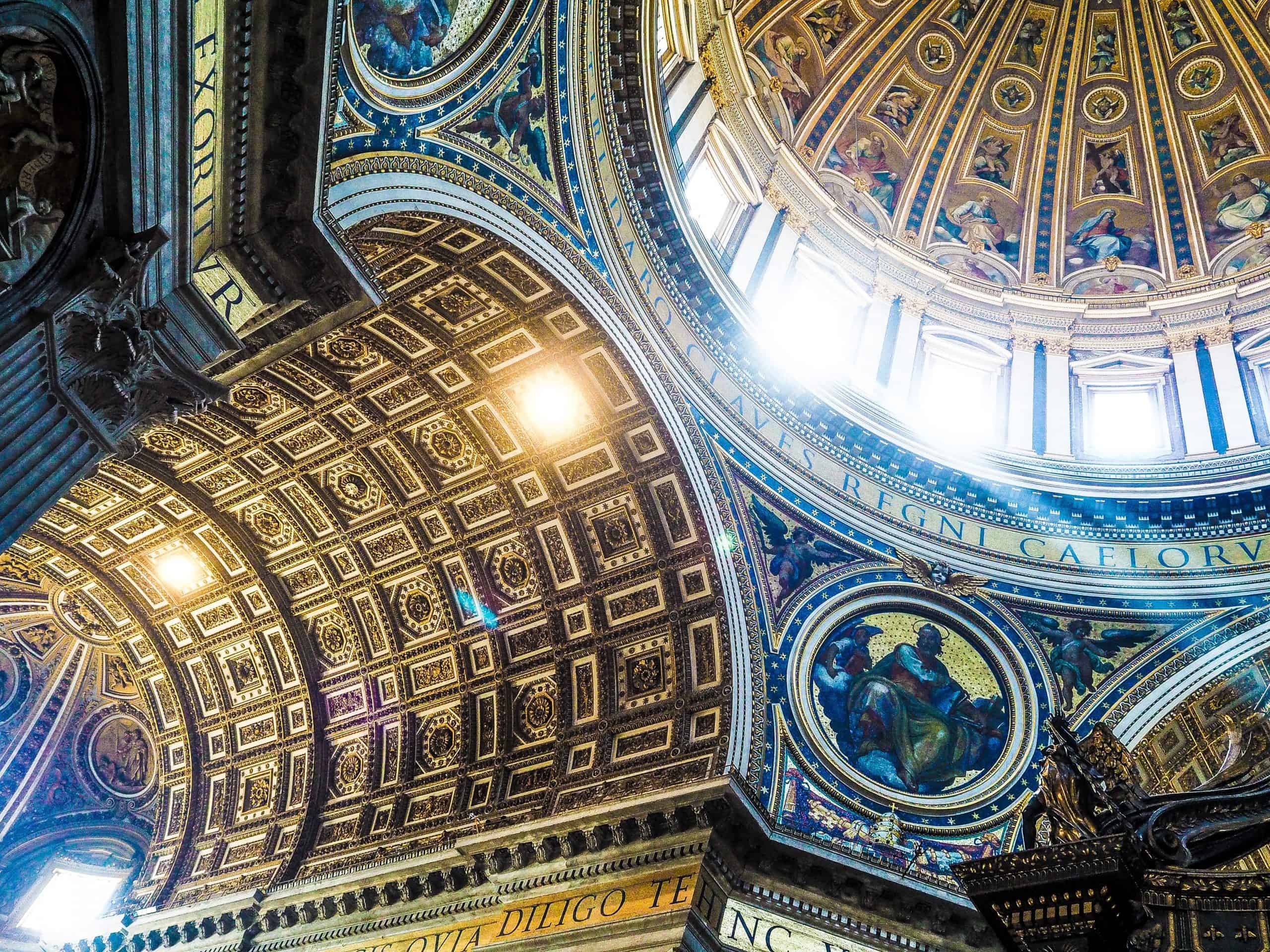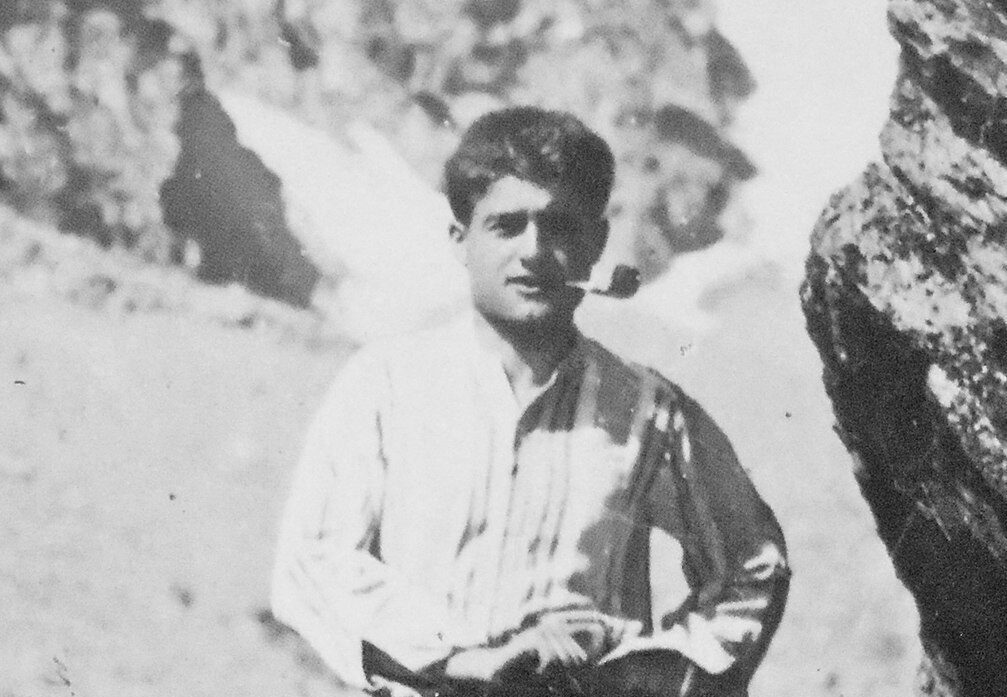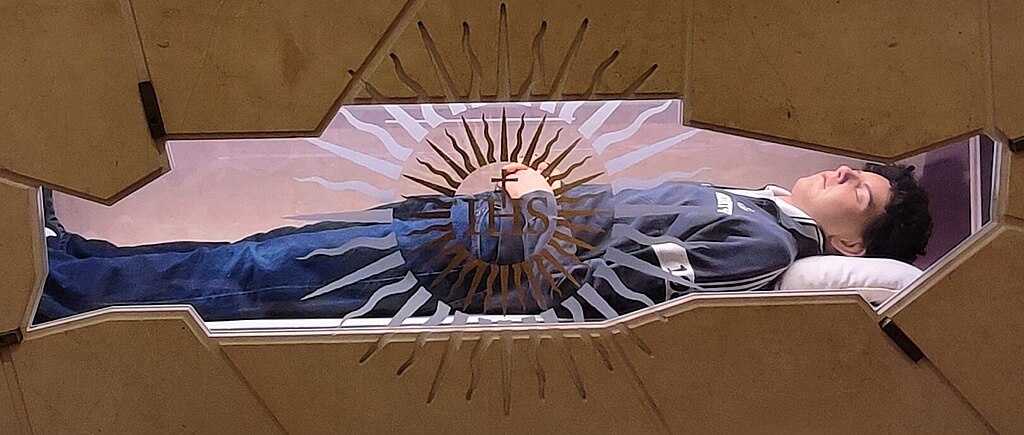Beginning with this quote from St. Paul’s Letter to the Romans (Romans 5:5), the Holy Father expressed a desire that the Jubilee be a moment of encounter with Christ, both for pilgrims to Rome and for those who cannot travel during the Jubilee Year.
“My thoughts turn to all those pilgrims of hope who will travel to Rome in order to experience the Holy Year and to all those others who, though unable to visit the City of the Apostles Peter and Paul, will celebrate it in their local Churches. For everyone, may the Jubilee be a moment of genuine, personal encounter with the Lord Jesus, the “door” (cf. Jn 10:7.9) of our salvation, whom the Church is charged to proclaim always, everywhere and to all as “our hope” (1 Tim 1:1)
In this address, the Holy Father pointed out the importance of several different hallmarks of the Jubilee, including:
Pilgrimage
“Pilgrimage is of course a fundamental element of every Jubilee event. Setting out on a journey is traditionally associated with our human quest for meaning in life. A pilgrimage on foot is a great aid for rediscovering the value of silence, effort and simplicity of life. … The Jubilee Churches along the pilgrimage routes and in the city of Rome can serve as oases of spirituality and places of rest on the pilgrimage of faith, where we can drink from the wellsprings of hope, above all by approaching the sacrament of Reconciliation, the essential starting-point of any true journey of conversion. In the particular Churches, special care should be taken to prepare priests and the faithful to celebrate the sacrament of Confession and to make it readily available in its individual form.” (5)
Holy Doors
“Sustained by this great tradition, and certain that the Jubilee Year will be for the entire Church a lively experience of grace and hope, I hereby decree that the Holy Door of the Basilica of Saint Peter in the Vatican will be opened on 24 December 2024, thus inaugurating the Ordinary Jubilee. On the following Sunday, 29 December 2024, I will open the Holy Door of my cathedral, Saint John Lateran, which on 9 November this year will celebrate the 1700th anniversary of its dedication. Then, on 1 January 2025, the Solemnity of Mary, Mother of God, the Holy Door of the Papal Basilica of Saint Mary Major will be opened. Finally, Sunday, 5 January 2025, will mark the opening of the Holy Door of the Papal Basilica of Saint Paul Outside the Walls. These last three Holy Doors will be closed on Sunday, 28 December 2025.” (6)
Local Celebrations
“I further decree that on Sunday, 29 December 2024, in every cathedral and co-cathedral, diocesan bishops are to celebrate Holy Mass as the solemn opening of the Jubilee Year, using the ritual indications that will be provided for that occasion. … A pilgrimage that sets out from a church chosen for the collectio and then proceeds to the cathedral can serve to symbolize the journey of hope that, illumined by the word of God, unites all the faithful. In the course of this pilgrimage, passages from the present Document can be read, along with the announcement of the Jubilee Indulgence to be gained in accordance with the prescriptions found in the ritual indications mentioned above. The Holy Year will conclude in the particular Churches on Sunday, 28 December 2025; in the course of the year, every effort should be made to enable the People of God to participate fully in its proclamation of hope in God’s grace and in the signs that attest to its efficacy.” (6)
Works of Charity & Mercy
“During the Holy Year, we are called to be tangible signs of hope for those of our brothers and sisters who experience hardships of any kind. I think of prisoners who, deprived of their freedom, daily feel the harshness of detention and its restrictions, lack of affection and, in more than a few cases, lack of respect for their persons. I propose that in this Jubilee Year governments undertake initiatives aimed at restoring hope; forms of amnesty or pardon meant to help individuals regain confidence in themselves and in society; and programmes of reintegration in the community, including a concrete commitment to respect for law.” (10)
“Signs of hope should also be shown to the sick, at home or in hospital. Their sufferings can be allayed by the closeness and affection of those who visit them. Works of mercy are also works of hope that give rise to immense gratitude. Gratitude should likewise be shown to all those healthcare workers who, often in precarious conditions, carry out their mission with constant care and concern for the sick and for those who are most vulnerable.” (11)
Pope Francis also spoke of the need to show hope to migrants, young people, the elderly, grandparents, and the poor.
The Sacrament of Confession
“The sacrament of Penance assures us that God wipes away our sins. We experience those powerful and comforting words of the Psalm: “It is he who forgives all your guilt, who heals every one of your ills, who redeems your life from the grave, who crowns you with love and compassion… The Lord is compassion and love, slow to anger and rich in mercy… He does not treat us according to our sins, nor repay us according to our faults. For as the heavens are high above the earth, so strong is his love for those who fear him. As far as the east is from the west, so far does he remove our sins” (Ps 103:3-4.8.10-12). The sacrament of Reconciliation is not only a magnificent spiritual gift, but also a decisive, essential and fundamental step on our journey of faith. There, we allow the Lord to erase our sins, to heal our hearts, to raise us up, to embrace us and to reveal to us his tender and compassionate countenance. There is no better way to know God than to let him reconcile us to himself (cf. 2 Cor 5:20) and savour his forgiveness. Let us not neglect Confession, but rediscover the beauty of this sacrament of healing and joy, the beauty of God’s forgiveness of our sins!” (23)
Interested in going on pilgrimage to Rome for the Jubilee? Join us! You can find more information here.






